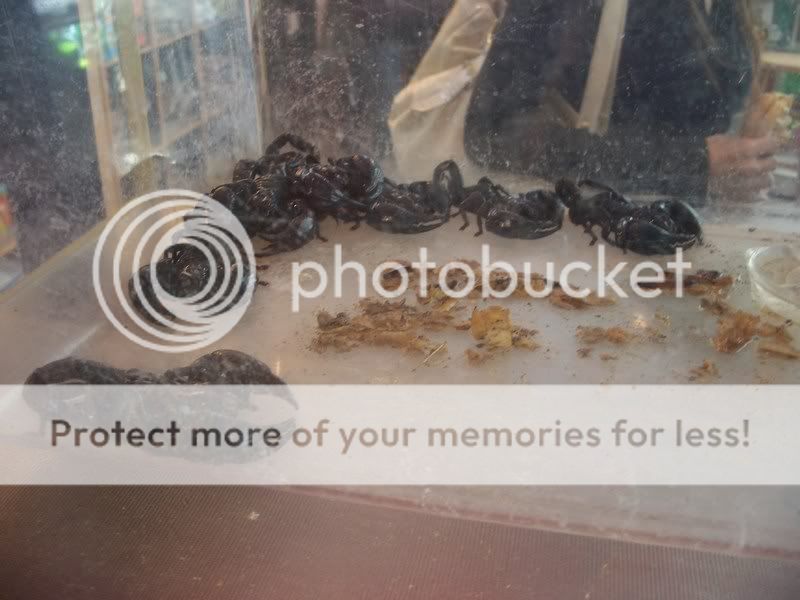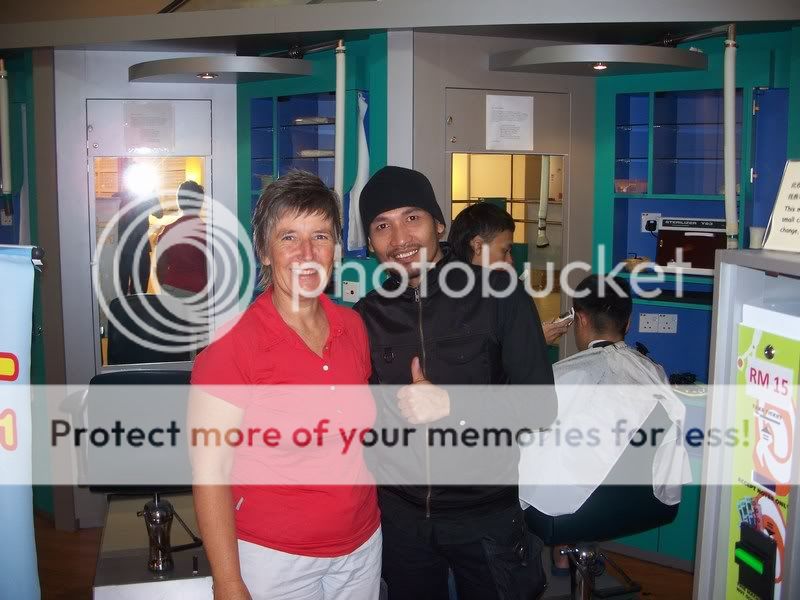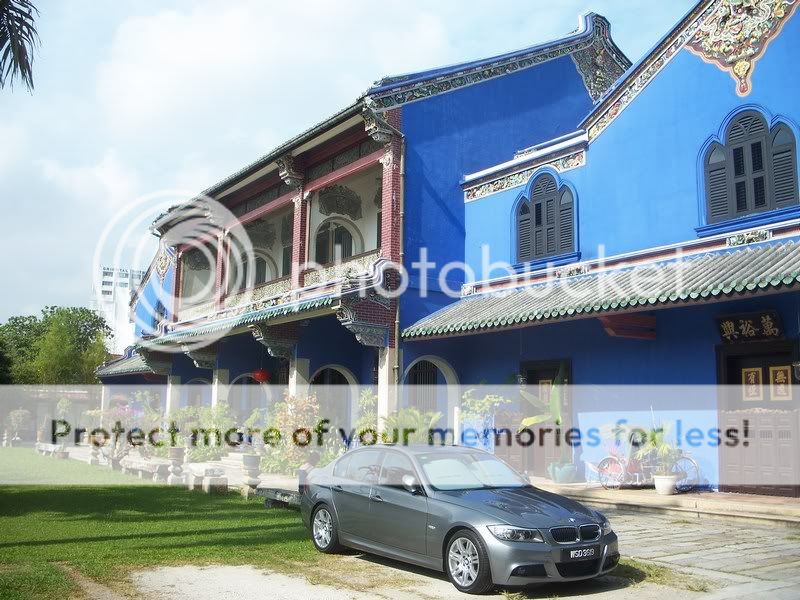Our stay in London began well. We browsed through St Mary's, the church beside Westminster Abbey (the entrance fee to the Abbey was exorbitant) before going off to meet our nephew Cameron, for lunch. Afterwards we took the tube to a little English theatre with the matinee performance of 'Woman in Black', a ghost story. The theatre was built when people were of much smaller stature so Huds was fortunate he had an aisle seat. We had bought the cheapest tickets available thinking we would be able to move forward in interval but the gallery was packed with two school groups, almost exclusively girls. Their jittery attention and terrified screams put the finishing touches to an excellent production.
We saw this sign while walking.

As night fell we bussed out to Gatwick to check in our bags and go to a nearby hotel so that the next morning we could relax as we went to catch our 10:30 am flight to Sharm-el-Sheikh. We were a little nervous, having seen the headlines warning of severe weather conditions, and were pleased to be settled safely into the hotel as we watched the magical transformation of the landscape as the first snow fell.

Next morning we woke to the TV news screaming of people being trapped in their cars overnight, children rejoicing to have an extra day off school and Gatwick Airport closed following very heavy overnight snowfall. At the airport we were told our plane was delayed until 12 by which time they hoped to have cleared the runway. By noon all British Airways and Easy Jet flights had been cancelled or their passengers bussed to Heathrow, which had remained open. Our flight was still meant to be going out. However, the rumours circulating were that there was only one snowplough battling to clear the runway (the driver of another had been unable to get into work because of the weather conditions) and that the pilots were running out of flying time. We continued to wait. The Arrivals Hall was cold and so we secured a spot in a restaurant that was slightly warmer, planning to consume very, very slowly the provisions we had bought using some of the compensatory food vouchers we had been given. Adding to the misery of the affair was a very loud, disruptive announcement, running every 15 min, reminding passengers to put their fluids in a clear plastic bag before going through security. As if anyone was going through security.
In the middle of the afternoon, realising we were likely to be spending the night at the airport, Ken went to explain that he needed a power point for his sleep apnoea machine and that the air the machine drew needed to be warm. This caused a little flurry of concern but the airport personnel directed him to the airport information staff who promised that we could have the first aid room. This meant we would have one bed, be much warmer and would not have to worry about Ken stopping breathing during the night. Ken checked that the information counter would be manned at whatever time he needed the room and was assured it would be, even if it meant ringing the assigned phone.
Ken went to get back the bags we had checked in the night before. There were about 4000 people delayed on Thomson flights alone but they insisted that for security reasons only 9 people at a time could go in with groups going about every half an hour. After Ken's 9 people were organised, their leader, who actually did not know the way to the baggage, told people that to make it faster she didn't want hand bags taken through security. Thus, where there were any pairs with hand bags, one remained, bringing the group down to about 7. When they got downstairs, there were 5 security guards, and to get the bags, they put everyone through more security than normal. Everybody had to take off their shoes and was thoroughly frisked. To make matters worse, they were told that only one member from each group could go through, reducing the group to about 5. Ken said that he could not carry all our bags for three people but they said there were trolleys. Of course, when they got there, one lady didn't have a pound for the trolleys because she'd been forced to leave her bags upstairs. So Ken lent her a pound and later kept her trolley. One of the guys in the group couldn't find his bags so they looked at his boarding pass and told him it was because his Bridgetown flight was supposed to be leaving. He couldn't believe it as he'd been told to go up at 3pm to find out about his flights and they told him his flight was cancelled and he had to pick up his bags. So he rushed out, his only consolation being that he still had a chance of getting out that night. The experience with the bags pretty well sums up what it was like all the time.
Ken tried ringing the hotel we had booked in Sharm to say we would not be coming that night but the number did not answer. He e-mailed Hotel club, the booking company we had used to secure the room, asking them to contact the hotel to say we would miss the first night but that we still required the next two nights.
Having lined up for approximately an hour to get more meal vouchers we had a slow tea and then Ken went off at about 4.30 pm to find our promised room. No staff, no-one answering the phone. When a relief staff member turned up about 10 minutes later she was pretty horrified to see the unmanned counter and could hardly believe the staff had gone home in the midst of the chaos when, with the snow, there was no guarantee they'd be replaced. She did her best to help Ken and the other stranded passengers seeking assistance, but to top things off discovered that the keys were being held physically by a staff member who couldn't make it into work. Fortunately, one of the airport staff had lined us up to have a rare hotel room, which resolved our situation, but we had to feel sorry for the many other passengers who were looking for blankets and pleading without success to be allowed to spend the night on the departure gate side of security where there was warmth and much more seating. Some people were supplied with foil blankets and we left this scene, somewhat guiltily, along with some of the elderly and a few families.

We were taken to a very plush hotel. Everyone queued to register. Half the queue was in the hotel lobby and half were standing outside in the snowy cold. Huds and I were shivering on the end of the queue and it looked as though it would take about an hour to process the queue. Dismayed I went to the doors and suggested that the queue do a u-turn so that everyone could get out of the cold. People good naturedly took up the suggestion.
We were offered a full buffet meal but, having just eaten, simply indulged in a delicious slice. We went to bed early as we had to catch the bus back at 5:30 am to be there for the first scheduled flight out. Ours was not scheduled until 10:30 am.
Back at the airport Ken joined the 4 hr queue to check the bags back in. It was particularly annoying to see the very short queue for the people scheduled that day to fly to Dahab at 10 am. While Ken waited two elderly women from the queue were taken out on stretchers. Apparently the hall had been extremely cold overnight and the fluids announcement ran throughout the night. We had difficulty getting more food vouchers as the staff was loath to give them out.
Some people in the check-in started getting very panicky as the time for their flight was fast approaching and they still had a long wait to reach the counter. Eventually they were taken to the front of the queue so they could be fast tracked (their planes actually didn't leave until the afternoon). Finally having checked our bags in we went through security. We kept watching the boards until we discovered the boards were actually wrong. They weren't being updated, despite the fact that plane times were being constantly rescheduled. At about 12 o'clock, an announcement came over the PA saying that all planes had been delayed because of the bad weather and the de-icing of the runways. This is the photo we took at the time of the announcement of the 'bad weather'.

Finally, in mid-afternoon, we got the announcement that we were to be bussed to Luton airport to fly out that evening. We had no time to get extra food vouchers. We had to get our bags off the carousel a second time. Being at the back of the group we discovered the carousel had been switched off before our bags had come through. After some minutes, we convinced someone to turn it back on. Huds and I went ahead, trying to find where the group had gone with no one to guide us and Ken waited behind to help a lady whose bags had not appeared at all. Having found the group, we met a man who had gone straight to where people were waiting for the buses, missing the carousel, and he was not allowed to go back through security to get his bags. He was assured that the bags would come.
We got onto the two coaches taking us to Luton Airport but there were five people left behind who couldn't get a seat. At Luton we asked for food vouches, having not eaten since 10am, and were told that they had spoken to the cabin staff. We checked in the bags for the third time and whizzed through security to sit and wait once again. Eventually they told us we were waiting for the five people who had not got seats on the coaches. We don't know whether they sent them by taxi or, as we suspect, had had to wait for another coach. On board we discovered that the reason Gatwick had got so few planes out that day was because they had run out of de-icing fluid.
We finally boarded about 7 pm. Explaining our lack of vouchers and the assurances given by the staff member at Luton we asked for water. The stewardess said that the situation had been discussed by the cabin crew and they had been directed to only take vouchers, that no free food or drink was to be supplied. With our one remaining 5 pound voucher we were able to purchase one 300ml water each.
We arrived at Sharm Airport at about 2pm. Ken went to take out money from the ATM. He got the money but the machine gobbled up his card. Very tired, hungry and upset we taxied to the hotel to find that our room had been given away. When Ken got onto the internet he discovered an e-mail from Hotel World saying that we must ring the hotel to say that we were not coming. This was despite Ken's e-mail telling them we had tried to contact the hotel but that the telephone number they had given us did not work. Since cheap accommodation was impossible to get in Sharm at this peak time we decided to go straight on to Dahab.
We are a day early for the apartment we have booked here in Dahab and since their phone is switched off and we can't contact them and no-one seems to have heard of the apartments or recognise the address (there are no street names in Dahab apparently), we have taken an apartment for one night. We had to sweep and mop the floor before we moved in and the sheets look a little suss but it is adequate. And so we are presently having a mental health day in Dahab.























